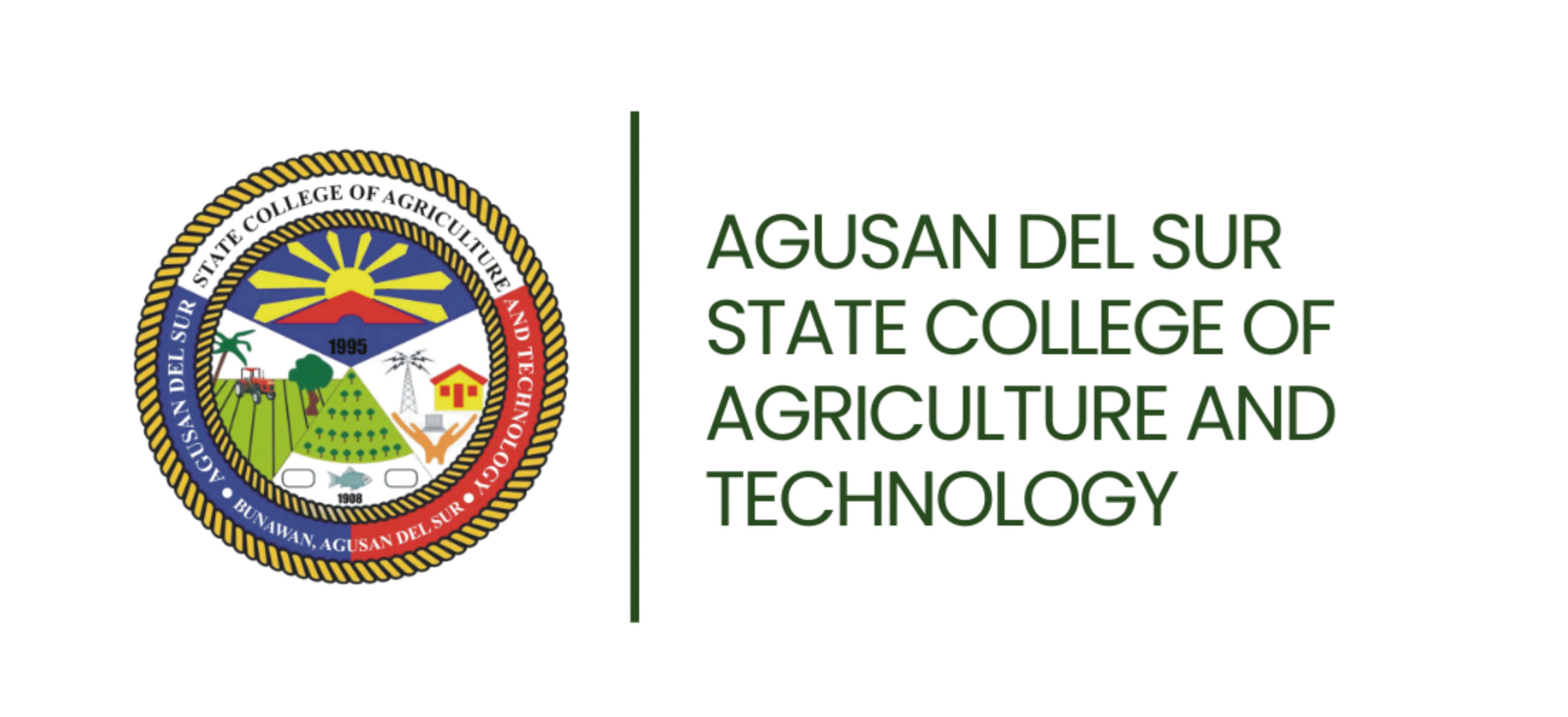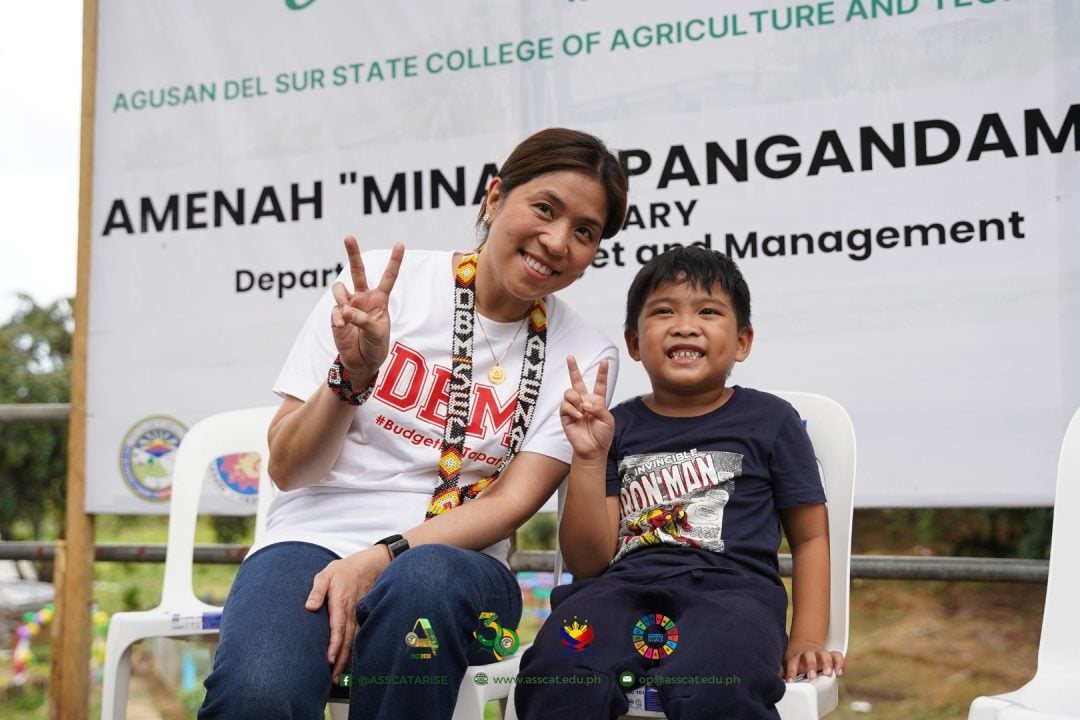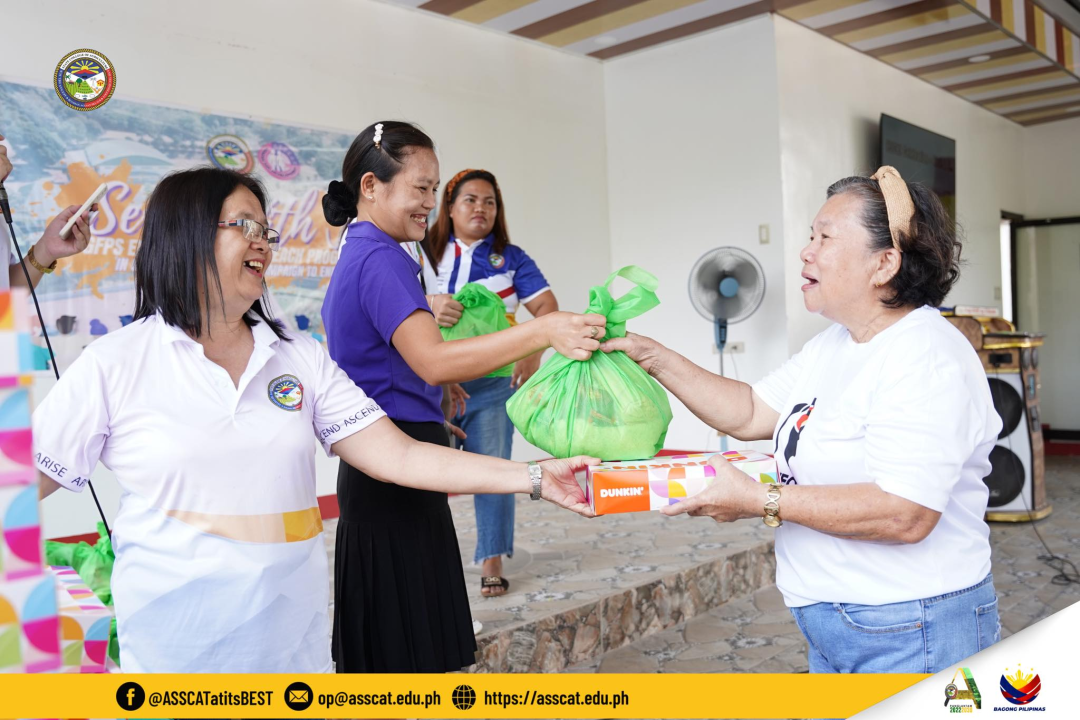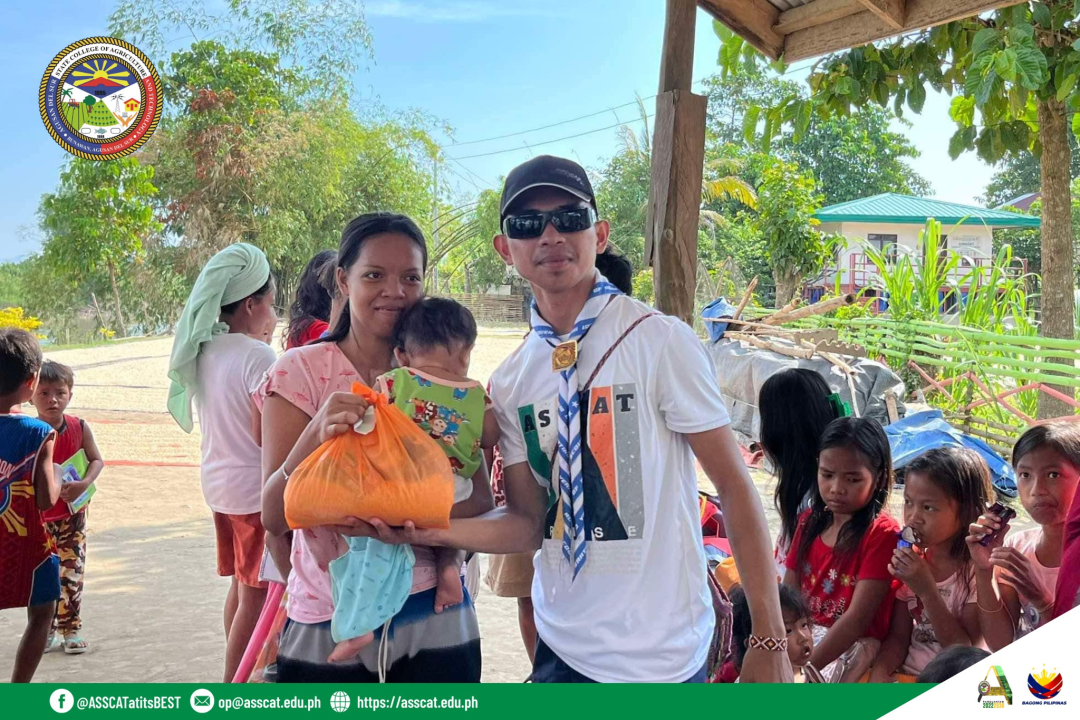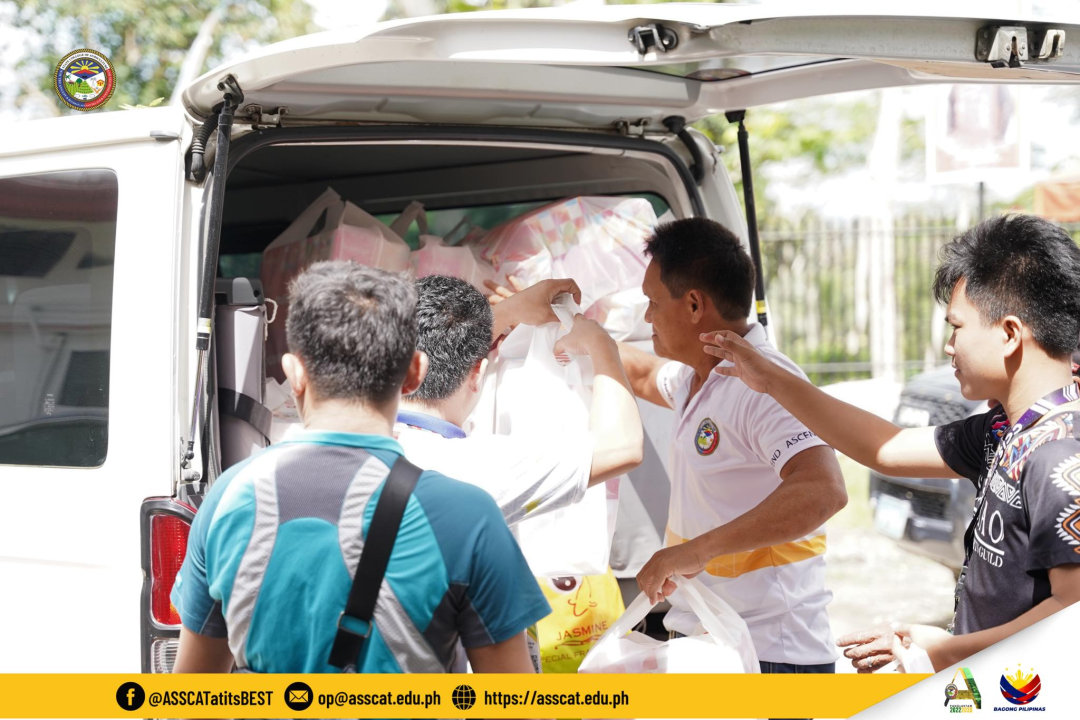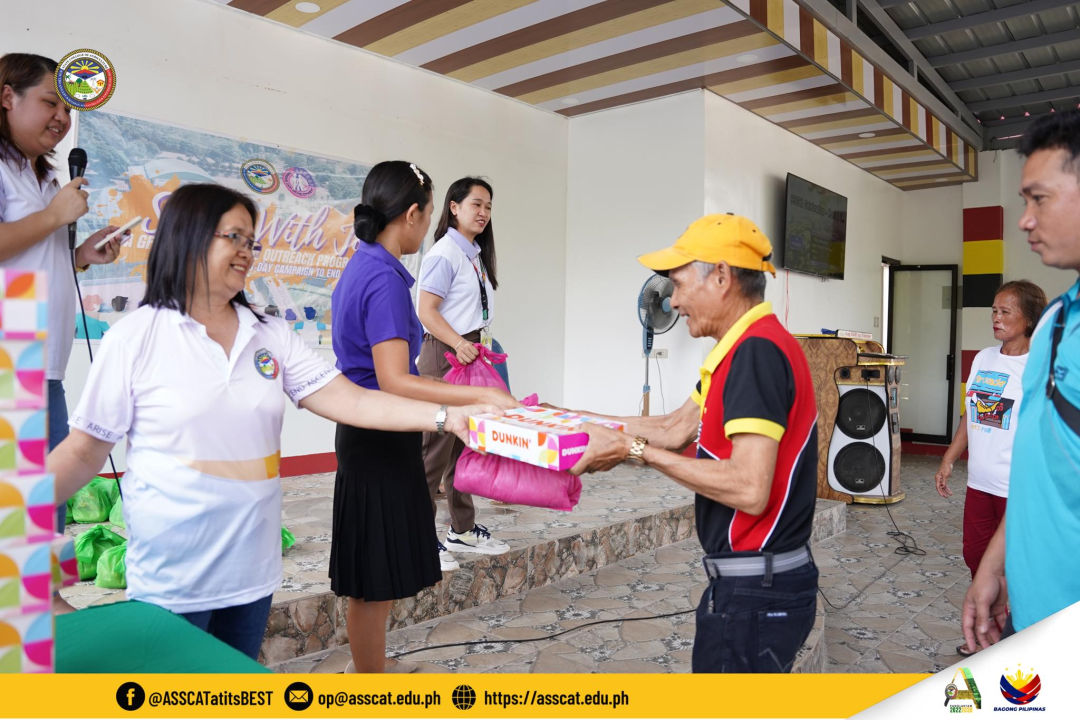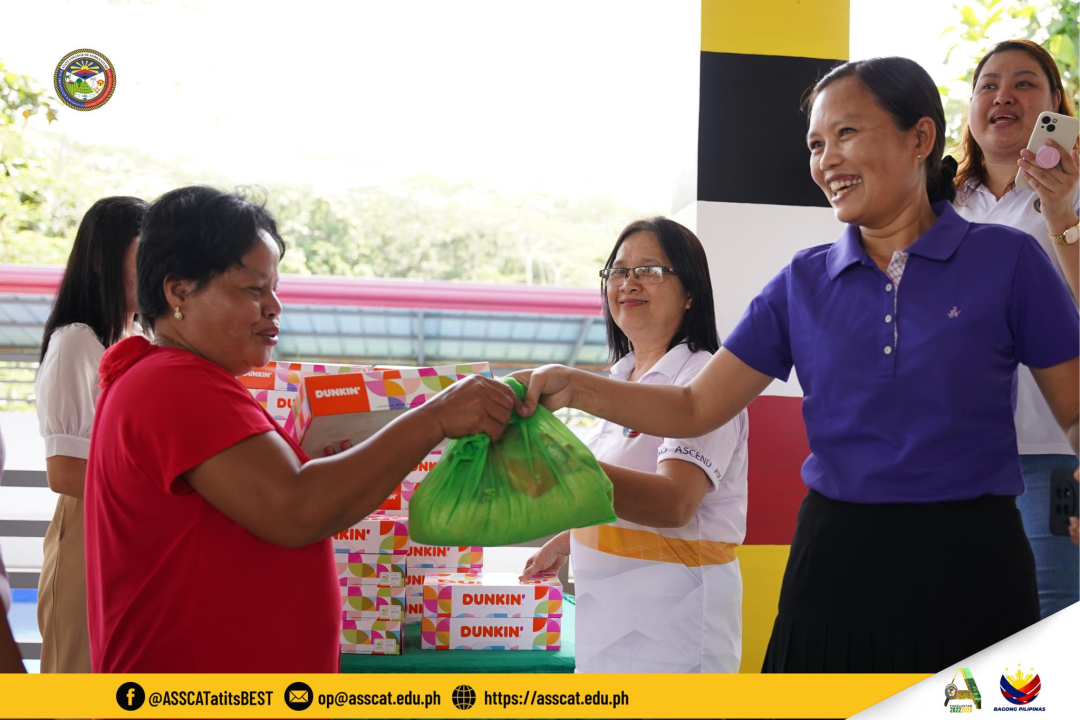SDG 1 No Poverty
At the Agusan del Sur State College of Agriculture and Technology (ASSCAT), addressing poverty remains a key focus of our research and community engagement. Our work under SDG 1 aligns with global efforts to understand, mitigate, and ultimately eradicate poverty, particularly in low and lower-middle-income contexts.
- Overview
- Indicators and Progress
SDG 1 aims to eradicate extreme poverty in all its forms by ensuring that individuals and communities have the resources, opportunities, and social protections needed to live dignified and productive lives. Despite global advancements, poverty continues to affect millions, fueled by economic inequality, limited access to essential services, climate-related shocks, and conflict-driven displacement.
Achieving this goal requires more than income support—it calls for resilient systems that empower people to rise from vulnerability, access education and livelihood opportunities, and participate fully in economic growth. By strengthening social safety nets, expanding inclusive development programs, and investing in human capital, nations and institutions can create environments where no one is left behind. SDG 1 sets the foundation for all other development goals, affirming that sustainable progress begins with lifting people out of poverty.
1.1 Research on Poverty
1.1.1 Papers Co-authored with Low or Lower-Middle Income Countries (2023)
Collaborating with institutions in developing regions fosters equitable partnerships, strengthens research capacity, and ensures that studies on poverty reflect real-world contexts. For 2023, ASSCAT produced research outputs that involved collaborations with lower-middle-income country institutions.
Table 1 – Co-authored Papers with Low/Lower-Middle-Income Countries
| Title of Paper / Research Output | Year | Co-author(s) | Country of Co-author | Income Classification |
|---|---|---|---|---|
| Socioeconomic Impacts of Mining’s Social Development and Management Program (SDMP) in Barobo, Surigao Del Sur, Philippines Using a Propensity Score Matching Analysis | 2022 | Dr. Nancy S. Doloriel | Philippines | Lower-Middle |
| Assessing Timber Trade Middlemen for Development Policy Actions: A Case Study in the Caraga Region, Philippines | 2022 | Dr. Rodrigo L. Bongolan | Philippines | Lower-Middle |
These collaborations support knowledge exchange, joint fieldwork, and shared data analysis, helping create research that addresses local challenges while contributing to global discussions on poverty reduction.
1.1.2 Field-Weighted Citation Impact (FWCI)
The FWCI measures the influence of a publication by comparing actual citations with the expected global average for similar research outputs.
Table 2 – Field-Weighted Citation Impact of Poverty-Related Publications
| Title of Publication | Year | Type | Citations | Expected Citations | FWCI |
|---|---|---|---|---|---|
| Socioeconomic Impacts of Mining’s Social Development and Management Program (SDMP) in Barobo, Surigao Del Sur, Philippines Using a Propensity Score Matching Analysis | 2022 | Journal Article | 5 | 30 | 0.17 |
| Assessing Timber Trade Middlemen for Development Policy Actions: A Case Study in the Caraga Region, Philippines | 2022 | Journal Article | 3 | 20 | 0.15 |
Although the FWCI indicates that these studies are cited less than global averages, they form a foundation for enhancing the reach and impact of ASSCAT’s poverty-focused research. Strengthening collaborations, publishing in high-visibility journals, and engaging in international networks can increase the influence of future work.
1.1.3 Publications on Poverty
Tracking the total number of poverty-related publications provides insight into ASSCAT’s engagement in this thematic area.
Table 3 – Poverty-Related Publications
| Title of Publication | Year | Type | Journal / Source | Focus Area |
|---|---|---|---|---|
| Socioeconomic Impacts of Mining’s Social Development and Management Program (SDMP) in Barobo, Surigao Del Sur, Philippines Using a Propensity Score Matching Analysis | 2022 | Journal Article | Journal of Positive School Psychology | Income Poverty |
| Assessing Timber Trade Middlemen for Development Policy Actions: A Case Study in the Caraga Region, Philippines | 2022 | Journal Article | Humanities and Social Sciences Communications | Income Poverty |
These publications explore community well-being, local livelihoods, and policy interventions, contributing to inclusive economic development and supporting SDG 1 objectives. They serve as a foundation for ASSCAT’s continued efforts in research-driven poverty alleviation.
Moving Forward
ASSCAT remains committed to strengthening research collaborations, expanding publication outputs, and integrating poverty studies into interdisciplinary initiatives. Through these efforts, the institution aims to enhance its contribution to sustainable development and equitable economic opportunities, fostering resilient communities both locally and globally.
1.2 Financial Aid for Students in Poverty
ASSCAT remains steadfast in its mission to promote equitable access to quality education, ensuring that no deserving student is left behind due to financial constraints. Through strategic partnerships with government agencies, local government units, and private foundations, the College continues to support students from low-income families and marginalized communities—strengthening its commitment to Sustainable Development Goal (SDG) 1: No Poverty.
1.2.1 Proportion of Low-Income Students Receiving Financial Aid
Table 1. List of Low-Income Student Support Programs for CY 2024
| Program / Scholarship Name | Type of Financial Aid | Nature | No. of Low-Income Beneficiaries (FTE, 2024) | Total Student Population (FTE, 2024) | % of Students Receiving Aid | Funding Source | Description / Remarks |
|---|---|---|---|---|---|---|---|
| Tertiary Education Subsidy (TES) | Stipend / Scholarship | Free | 1,271 | 7,877 | 16.14% | CHED | ₱10,000 per semester for qualified low-income students (4Ps, bottom 20%). |
| TES – Tulong Dunong Program (TES–TDP) | Stipend / Scholarship | Free | 752 | 7,877 | 9.56% | CHED | ₱10,000 per semester for 4Ps and low-income students. |
| ACEF Grant Program | Stipend / Scholarship | Free | 3 | 7,877 | 0.04% | DA / CHED | ₱20,000 per semester for children of farmers in agriculture programs. |
| U-Go Ayala Foundation Scholarship | Stipend / Scholarship | Free | 8 | 7,877 | 0.10% | Ayala Foundation | ₱20,000 per semester for financially challenged women scholars. |
| CHED Merit Scholarship (Full SSP) | Stipend / Scholarship | Free | 5 | 7,877 | 0.06% | CHED | ₱40,000 per semester for academically talented and financially needy students. |
| CHED Merit Scholarship (Half SSP) | Stipend / Scholarship | Free | 6 | 7,877 | 0.08% | CHED | ₱20,000 per semester for academically talented and financially needy students. |
| Coconut Farmers and Families Scholarship (CoScho) | Stipend / Scholarship | Free | 30 | 7,877 | 0.38% | PCA / CHED | ₱40,000 per semester + laptop and thesis assistance for dependents of coconut farmers. |
| DOST S&T Scholarship | Monthly Allowance / Scholarship | Free | 6 | 7,877 | 0.08% | DOST | ₱8,000 monthly allowance + ₱5,000 book allowance per semester. |
| GBF TeachSTEM College Scholarship | Stipend / Scholarship | Free | 8 | 7,877 | 0.10% | Gokongwei Brothers Foundation | ₱45,000 per semester for Education students majoring in STEM. |
| NCIP Educational Assistance Program (EAP) | Monthly Allowance / Scholarship | Free | 1 | 7,877 | 0.01% | NCIP | ₱4,000 monthly allowance for Indigenous People students. |
| PGAS – PWD Scholarship | Monthly Allowance / Scholarship | Free | 1 | 7,877 | 0.01% | Provincial Government of Agusan del Sur | ₱3,000 monthly allowance for IP students with disabilities. |
| PGAS – Expanded Baccalaureate Degree Scholarship (EBDSP) | Monthly Allowance / Scholarship | Free | 24 | 7,877 | 0.30% | PGAS | ₱2,000 monthly allowance for half-blooded IPs in Agusan del Sur. |
| PGAS – Full-Blooded Native (FBN) Scholarship | Monthly Allowance / Scholarship | Free | 22 | 7,877 | 0.28% | PGAS | ₱3,000 monthly allowance for full-blooded IP students. |
| PGAS – Non-Native Scholarship | Monthly Allowance / Scholarship | Free | 2 | 7,877 | 0.03% | PGAS | ₱3,000 monthly allowance for non-IP students from Agusan del Sur. |
| Philsaga PMC–SDMP | Monthly Allowance / Scholarship | Free | 11 | 7,877 | 0.14% | Philsaga Mining Corporation | ₱3,000 monthly allowance for students from Philsaga’s host communities. |
| Philsaga MMPRC–SDMP | Monthly Allowance / Scholarship | Free | 1 | 7,877 | 0.01% | Philsaga Mining Corporation | ₱3,000 monthly allowance for students from host communities. |
| Tulong Dunong Program (TDP–SUCs) | One-Time Grant | Free | 132 | 7,877 | 1.68% | CHED | ₱7,500 one-time grant for students from vulnerable and marginalized sectors. |
| Iskolar ng LANDBANK Program (ILP) | Stipend / Scholarship | Free | 4 | 7,877 | 0.05% | LANDBANK Countryside Development Foundation | ₱50,000 grant for children of farmers and fishers. |
| PGAS – USAD Farmers’ Children Scholarship | Grant | Free | 27 | 7,877 | 0.34% | PGAS–LGU | ₱2,000 monthly grant for children of USAD farmers. |
TOTAL: 2,314 Low-Income Students Supported out of 7,877 (29.38%)
Narrative Summary
In 2024, ASSCAT strengthened its commitment to inclusive and equitable education by expanding financial aid programs for students in need. Out of the total student population, 2,314 scholars received financial assistance through various scholarship and grant programs. These initiatives enabled more learners from low-income families to continue their studies without the burden of financial constraints.
Government-Supported Programs
The Commission on Higher Education (CHED) led in providing financial assistance through key national programs.
- The Tertiary Education Subsidy (TES) and TES–Tulong Dunong Program (TES–TDP) collectively supported over 2,000 low-income students, each receiving ₱10,000 per semester.
- The CHED Merit Scholarship Program (Full and Half SSP) recognized academically talented yet financially challenged students in priority fields such as STEM, Agriculture, Education, and Health Sciences.
- The Tulong Dunong Program (TDP–SUCs) extended ₱7,500 one-time grants to 132 students from vulnerable sectors.
Sector-Specific and National Agency Grants
- The ACEF Grant Program and the Coconut Farmers and Families Scholarship (CoScho) provided financial assistance to students from farming backgrounds.
- The DOST S&T Scholarship Program continued to support scholars with high aptitude in science and mathematics, providing both monthly and book allowances.
Local Government Initiatives
The Provincial Government of Agusan del Sur (PGAS) sustained multiple scholarships benefiting Indigenous Peoples (IPs), Persons with Disabilities (PWDs), and USAD farmers’ children. Through these programs, 77 students received monthly allowances ranging from ₱2,000 to ₱3,000, strengthening local support for educational inclusion and cultural empowerment.
Private Sector Partnerships
Private foundations and corporations complemented public initiatives:
- The Iskolar ng LANDBANK Program extended ₱50,000 grants to children of farmers and small fishers.
- The Ayala Foundation’s U-Go Scholarship and the Gokongwei Brothers Foundation TeachSTEM Program provided direct support to 16 financially challenged yet high-achieving students.
- Philsaga Mining Corporation’s SDMP (Educational Assistance) offered monthly stipends to students from its host and neighboring communities.
Summary Interpretation
Through a diverse portfolio of scholarships and financial aid, ASSCAT successfully assisted nearly one-third of its student body in 2024. These programs not only reduce financial barriers to higher education but also empower underprivileged students to complete their studies and contribute to sustainable community development.
This commitment reflects ASSCAT’s broader vision of a globally engaged institution of sustainable agriculture and innovation, where education serves as a powerful tool to break the cycle of poverty and foster inclusive, transformative growth in the region.
1.3 University Anti-Poverty Programs
Inclusive Admissions and Support for Low-Income Students (2024)
Agusan del Sur State College of Agriculture and Technology (ASSCAT) remains steadfast in its mission to provide equitable access to quality higher education, particularly for students from low-income households, marginalized communities, and disadvantaged groups.
In 2024, the College strengthened its inclusive admission initiatives to increase opportunities for learners belonging to the bottom 20% of household income groups, including beneficiaries of the 4Ps Program, Persons with Disabilities (PWDs), and Indigenous Peoples (IPs).
1.3.1 Bottom Financial Quintile Admission Target
Admission Performance
Through its Pre-Admission System, ASSCAT streamlined its application process to ensure accessibility and transparency for all applicants. Data showed a 166.6% increase in applications received compared to the target, reflecting improved outreach and awareness among low-income communities.
All pre-admission applications for Academic Year 2023–2024 were successfully received and processed. However, 27% of applicants did not proceed to the College Admission Test (CAT) due to factors such as multiple accounts or withdrawn applications. Despite this, qualified CAT takers were admitted in accordance with institutional policies for inclusive education.
Targeted Support and Admission Outcomes
ASSCAT’s admission policy (Memo No. 05, s. 2023) includes focused measures for specific underrepresented groups:
| Target Group | Admission Share (2024) | Support Mechanism | Type |
|---|---|---|---|
| Persons with Disabilities (PWDs) | 5% | Free admission | ✅ Free |
| Honor Students (SHS/JHS) | 10% | Recognition via guidance office profiling | ✅ Free |
| Indigenous Peoples (IPs) | 10% (↑17% from target) | Inclusive admissions and outreach | ✅ Free |
A total of 2,133 low-income students were admitted in 2024, demonstrating ASSCAT’s consistent efforts to reach the bottom financial quintile and expand educational access in Agusan del Sur and nearby regions.
Ensuring Transparency and Student Engagement
To maintain openness and community awareness, ASSCAT regularly shares updates and student stories through its official platforms:
- Official Student Publication — Ani: Serves as the student media organ promoting creative expression and institutional visibility in both print and digital formats.
- ASSCAT OSAS Facebook Page: Documents programs, announcements, and success stories related to inclusive admission and student welfare.
These platforms help communicate the university’s ongoing commitment to inclusion, empowerment, and poverty reduction through education.
1.3.2 — Bottom Financial Quintile Student Success
Empowering Low-Income Students Toward Graduation
Agusan del Sur State College of Agriculture and Technology (ASSCAT) continues to uphold its commitment to inclusive and equitable access to quality education by setting clear graduation and completion targets for students belonging to the lowest 20% of household income groups in the country.
This initiative reflects the College’s alignment with Sustainable Development Goal (SDG) 1 – No Poverty and SDG 4 – Quality Education, ensuring that no student is hindered from completing higher education due to poverty, geographical isolation, or financial hardship.
Graduation Performance (AY 2023–2024)
In Academic Year 2023–2024, ASSCAT produced a total of 1,042 graduates, of which 1,007 students (96.64%) were identified as coming from low-income households. These included beneficiaries of the Tertiary Education Subsidy (TES), the Pantawid Pamilyang Pilipino Program (4Ps), members of Indigenous Peoples (IPs) communities, and other financially disadvantaged groups.
The institution initially set a completion target of at least 95% for students from low-income backgrounds. ASSCAT not only met but exceeded this benchmark, achieving a 96.64% completion rate, a milestone that underscores the effectiveness of its inclusive education and student support framework.
Table 1. Graduation Performance of Low-Income Students (AY 2023–2024)
| Academic Year | Total Graduates | Graduates from Low-Income Households | Completion Rate |
|---|---|---|---|
| 2023–2024 (2nd Semester) | 1,042 | 1,007 | 96.64% |
Institutional Targets and Support Mechanisms
ASSCAT’s inclusive education policy defines its bottom financial quintile target group as students belonging to the lowest 20% of household income — including TES and 4Ps beneficiaries, Indigenous Peoples (IPs), and other marginalized sectors.
To help these students stay and succeed in college, the College implements a set of support mechanisms designed to remove financial and non-financial barriers to graduation:
- Free tuition and miscellaneous fees under Republic Act No. 10931 (Universal Access to Quality Tertiary Education Act)
- Tertiary Education Subsidy (TES) and 4Ps-linked financial assistance to cover daily academic and living needs
- Guidance and Counseling Services that provide academic advising, psychosocial support, and mentoring for retention and completion
- Scholarship and support programs for Indigenous Peoples (IPs) and Persons with Disabilities (PWDs) to promote inclusion and equitable learning opportunities
Table 2. Graduation Targets and Achievements
| Year | Target Completion Rate | Actual Completion Rate | Achievement |
|---|---|---|---|
| 2024 | 95% minimum | 96.64% | Target exceeded |
ASSCAT surpassed its institutional graduation target by maintaining a high completion rate among low-income students. This outcome highlights the effectiveness of its financial aid programs, student support services, and inclusive policies that enable students from the poorest households to finish their degrees successfully.
Sustaining Success and Impact
The Graduation Report on Low-Income Student Completion (2nd Semester AY 2023–2024) serves as official documentation of this achievement. The data affirm that more than nine out of ten low-income students successfully completed their programs — a strong indicator of ASSCAT’s sustained commitment to educational equity and poverty reduction.
By continuously strengthening its scholarship, retention, and completion initiatives, ASSCAT ensures that every learner — regardless of economic background — has the opportunity to graduate, find gainful employment, and contribute to community and national development.
These efforts demonstrate that education remains one of the most powerful tools against poverty, and ASSCAT stands firm in its role as a catalyst for inclusive growth and lifelong transformation.
1.3.3 — Low-Income Student Support
Support Services for Students from Low-Income Families
Agusan del Sur State College of Agriculture and Technology (ASSCAT) remains firmly committed to promoting equity and inclusion by ensuring that students from low-income households receive the support they need to complete their studies. The College recognizes that financial hardship often leads to interruptions in schooling and reduced retention. To address this, ASSCAT provides targeted welfare services—such as food assistance, free housing, transport aid, and other essential support—to reduce the economic pressures faced by its most vulnerable learners.
Flagship Initiative: PGAS-FBN Indigenous People Full-Blooded Native Scholarship Program (CY 2024)
A major initiative implemented in 2024 is the Provincial Government of Agusan del Sur Indigenous People Full-Blooded Native (PGAS-FBN) Scholarship Program, a cornerstone program designed specifically for financially disadvantaged Indigenous learners.
Through its partnership with the Provincial Government of Agusan del Sur, ASSCAT provides:
- Free board and lodging
- Free daily meals
- Book allowance
- Safe, welfare-monitored accommodation
This comprehensive package directly benefits Indigenous People Full-Blooded Native scholars—many of whom come from geographically isolated and economically challenged areas. In 2024, 22 IP scholars were fully supported through this program, all funded by the PGAS Scholarship Program Trust Fund.
By covering housing, meals, and academic needs, the program significantly reduces the day-to-day living costs of low-income students. For many scholars who are first-generation college students, this assistance is crucial in helping them stay enrolled, maintain good academic standing, and progress toward graduation.
Beyond Financial Support: A Holistic Welfare Framework
The PGAS-FBN Program goes beyond subsidies. It integrates:
- Regular welfare monitoring by the Student Scholarship Office
- Academic guidance and mentoring
- Psychosocial support and counseling
- Transparent reporting (billing records, accommodation reports, and other documentation submitted to the PGAS Scholarship Office)
These measures ensure that scholars receive not only financial assistance but also the emotional, academic, and administrative support needed to succeed.
Alignment with SDG 1 and National Policies
This initiative demonstrates ASSCAT’s active contribution to SDG 1: No Poverty by removing barriers that hinder access to higher education. It also strengthens the College’s adherence to Republic Act No. 10931 (Universal Access to Quality Tertiary Education Act), which seeks to eliminate ancillary expenses that often discourage low-income learners from completing a degree.
The PGAS-FBN Program also highlights strong intergovernmental collaboration—showing how local government support and higher education initiatives can work together to uplift marginalized communities and advance inclusive development.
Table 1. List of Low-Income Student Support (CY 2024)
| Program / Scholarship | Type of Support | Beneficiaries (2024) | Funding Source | Description / Remarks |
|---|---|---|---|---|
| PGAS Indigenous People Full-Blooded Native (PGAS–FBN) Scholarship Program | Free board, lodging, meals, and book allowance | 22 | PGAS Scholarship Program Trust Fund | Provides full accommodation, daily meals, and book allowance to support IP scholars from low-income, geographically isolated communities |
1.3.4 Bottom Financial Quintile Student Support (Year 2024)
Agusan del Sur State College of Agriculture and Technology (ASSCAT) continues to strengthen its commitment to inclusive and equitable education by expanding targeted support programs for students belonging to the bottom 20% of household income. In 2024, the university implemented 19 financial assistance and scholarship programs, benefiting a total of 2,133 low-income learners, including Indigenous Peoples (IPs), 4Ps beneficiaries, farmers’ children, students with disabilities, and other vulnerable groups.
These programs—funded through national government agencies, local government units, private foundations, and institutional partnerships—ensure that financial hardship does not prevent qualified students from accessing and completing higher education.
Major Government-Funded Programs
The Tertiary Education Subsidy (TES) and TES–Tulong Dunong Program (TES-TDP) remained the largest assistance initiatives for low-income learners. Both programs, administered by CHED, provided ₱10,000 per semester to students belonging to 4Ps households, IP communities, and the bottom financial quintile. Together, TES and TES-TDP supported 1,690 students, covering essential learning needs such as tuition, school supplies, and living expenses.
Targeted agriculture-sector programs also supported the poorest farming families. The ACEF Grant Program and the Coconut Farmers and Their Families Scholarship (CoScho) extended ₱20,000 to ₱40,000 per semester, with CoScho offering additional benefits including a one-time ₱35,000 laptop grant and ₱75,000 for OJT and thesis requirements. These programs contribute directly to rural development and poverty reduction among farming communities.
Foundation and Industry Scholarships
Private partners significantly expanded support for students from the bottom quintile:
- U-Go Ayala Foundation Scholarship – ₱20,000 per semester for financially challenged female scholars
- GBF TeachSTEM Scholarship – ₱45,000 per semester for future STEM educators
- Rock Diwata Builders, Inc. Scholarship – monthly stipend for financially challenged engineering students
These partnerships highlight ASSCAT’s collaborative approach to widening access to higher education, especially for high-performing but financially vulnerable learners.
Local Government Initiatives
The Provincial Government of Agusan del Sur (PGAS) sustained several scholarship programs for Indigenous Peoples, Persons with Disabilities, and other low-income residents. Programs such as PGAS-FBN, PGAS-EBDSP, PGAS-PWD, and PGAS-Non-Native provided ₱2,000–₱3,000 monthly stipends, directly supporting students’ basic living and academic needs. These local initiatives strengthen the province’s commitment to inclusive education and social mobility.
Other Sectoral Assistance
Additional support came from sector-driven programs, including:
- DOST S&T Scholarship – ₱8,000 monthly allowance plus book support for poor but high-aptitude STEM students
- Iskolar ng LANDBANK Program (ILP) – ₱50,000 support for children of small farmers and fishers
- Philsaga Mining Corporation SDMP Scholarships – monthly stipends for deserving learners from mining communities
These programs broaden ASSCAT’s reach to marginalized groups in agriculture, science, and community-based sectors.
Overall Impact
Across all 19 initiatives, ASSCAT’s support structure demonstrates a holistic, multi-agency, and equity-driven approach. The combined assistance—ranging from stipends, book and laptop grants, and monthly allowances to fully subsidized aid—ensures that students from the lowest income bracket can pursue and complete their degrees without the burden of financial insecurity.
This comprehensive support system contributes directly to SDG 1: No Poverty, as it enhances retention, completion rates, and social mobility among underprivileged learners. Through sustained partnerships and targeted interventions, ASSCAT reaffirms its commitment to making higher education accessible, equitable, and transformative for all.
1.3.5 Low or Lower-Middle Income Countries Student Support (CY 2024)
Agusan del Sur State College of Agriculture and Technology (ASSCAT) continues to strengthen its commitment to accessible and inclusive education, particularly for underserved Filipino learners. As a state college mandated to prioritize local and regional development, the institution’s financial assistance and welfare programs are currently designed for domestic students, especially those from low-income, rural, and Indigenous communities.
For Calendar Year 2024, the university did not implement programs or assistance schemes specifically intended for students from low or lower-middle-income countries. No international beneficiaries under this category were recorded during the reporting period.
While the institution’s present support systems remain focused on Filipino students—as guided by national policies such as RA 10931—ASSCAT acknowledges the value of building pathways for future international participation. The college continues to explore opportunities to strengthen its internationalization efforts, including potential partnerships that may pave the way for scholarships, exchange arrangements, or collaborative programs for students from developing countries.
This area represents a meaningful opportunity for growth as ASSCAT works toward expanding its global engagement while staying true to its mission of promoting inclusive, student-centered education. The institution remains committed to continually improving its support structures to ensure that future initiatives can welcome a broader and more diverse community of learners.
1.4 Community Anti-Poverty Programs
1.4.1 Local Start-up Assistance
University-Led Programs to Improve Access to Basic Services
In 2024, Agusan del Sur State College of Agriculture and Technology (ASSCAT) continued its commitment to empowering local communities through sustainable, research-driven outreach programs. These initiatives focused on enhancing access to basic services, improving nutrition, supporting livelihoods, and fostering sustainable agriculture among marginalized populations.
Two major programs exemplified this commitment:
1. Vertical Farming Innovations for Maximizing Lettuce Yield
Research Applied: “Evaluation of Lettuce (Lactuca sativa) Growth and Yield Growth Vertically Using Non-Circulating Hydroponic System”
This program introduced innovative vertical hydroponic farming techniques to maximize vegetable production in limited spaces. The initiative targeted homemakers, women, youth, and small-scale farmers from low-income households in Barangay Nueva Era, Bunawan, Agusan del Sur.
Objectives:
- Empower beneficiaries with practical hydroponic farming skills.
- Promote nutrition-sensitive agriculture for household food security.
- Equip participants with income-generating livelihood opportunities.
- Build sustainable community networks for knowledge exchange.
Implementation:
- Conducted a three-day intensive training combining lectures, demonstrations, and hands-on workshops.
- Delivered training manuals, demonstration plots, and lettuce seedlings.
- Faculty guided sessions while students assisted in facilitation and monitoring.
Outcomes:
- Improved household access to nutritious food.
- Enhanced income through small-scale lettuce production.
- Strengthened women’s participation in agricultural entrepreneurship.
- Established a sustainable community network for food production.
2. Training Seminar on High-Value Spices Production and Organic Concoction Application
Research Applied: “Yield Performance of Radish (Raphanus sativus) Applied with Organic Concoction Fish Amino Acid”
This seminar promoted organic and climate-smart agricultural practices among farmers, homemakers, and youth in Nueva Era, Bunawan. Participants learned to produce organic fertilizers using Fish Amino Acid and cultivate high-value spices sustainably.
Objectives:
- Educate participants on organic fertilizer production and eco-friendly farming.
- Strengthen climate-smart agriculture practices for food security.
- Develop sustainable income sources through spice cultivation.
Implementation:
- Three-day hands-on seminar with live demonstrations.
- Participants produced organic fertilizer samples and spice seedlings.
- Faculty and students guided learning and documentation.
Outcomes:
- Adoption of low-cost, environmentally friendly farming practices.
- Reduced reliance on chemical inputs, improved soil fertility.
- Strengthened livelihoods and promoted household nutrition.
- Encouraged environmental stewardship and climate resilience.
1.4.2 Local Start-up Financial Assistance
Program: “Setting up an Online Store / Platform Using Canva and Social Media”
ASSCAT supported housewives and young entrepreneurs in Bunawan Brook, Bunawan, by providing technical mentorship and ₱10,000 in-kind seed support per group. The program aimed to build digital entrepreneurship skills and enable participants to establish online businesses.
Objectives:
- Equip participants with skills to create and manage online businesses.
- Enhance financial literacy and digital marketing competencies.
- Foster self-reliance and sustainable household income.
Implementation:
- One-day intensive training combining lectures, guided workshops, and mentoring.
- Participants learned Canva design, social media management, branding, and basic financial management.
- Faculty, research staff, and students facilitated sessions and documentation.
Outcomes:
- Developed functional prototype online stores.
- Strengthened entrepreneurial confidence and digital competence.
- Promoted income generation and community collaboration.
- Encouraged innovation and economic resilience within the local community.
1.4.3 Programs for Services Access (Year 2024)
In 2024, the Agusan del Sur State College of Agriculture and Technology (ASSCAT) strengthened community access to essential services through research-based extension programs in health, nutrition, education, and livelihood. The university prioritizes translating academic research into practical initiatives that empower communities, improve quality of life, and foster sustainable development.
Program 1: Enriching Backyard Gardening
The program “Enriching Backyard Gardening: Optimizing Bitter Gourd Yield and Quality with Gibberellic Acid and Vermicompost” applied findings from the research “Combination of Gibberellic Acid (GA3) and Vermicompost Increased the Yield of Bitter Gourd (Momordica charantia, L.) cv. Sta. Rita.”
Objectives:
- Train homemakers and youth in sustainable backyard gardening
- Enhance food security and nutritional intake
- Strengthen community partnerships
- Improve vegetable production skills for livelihood
Conducted in collaboration with BLGU Nueva Era, Bunawan, the three-day training targeted farmers, out-of-school youth, and homemakers. Faculty, research staff, and student volunteers guided participants in applying GA₃ and vermicompost, planting high-yield bitter gourd varieties, and practicing organic cultivation. The activity also covered post-harvest care and resource management.
Outcome: Participants increased household food production, improved nutrition, and gained supplemental income, demonstrating sustainable access to nutritious food.
Evidence: Program report, attendance sheets, photo documentation
Program 2: Training on Bio Pesticides Preparation
This training applied research on “Tree Botanical Bark Powder Against Corn Weevil During Storage” to equip small-scale farmers with eco-friendly pest control techniques.
Objectives:
- Teach preparation of bio-pesticides using local botanicals
- Promote sustainable, chemical-free farming
- Encourage environmentally responsible agricultural practices
The two-day program, held in Nueva Era, engaged farmers, youth, and housewives. Participants produced bio-pesticides, learned proper application techniques, and developed demonstration materials.
Outcome: Reduced chemical pesticide use, improved environmental health, and safer food production.
Evidence: Training report, photos, attendance sheets
Program 3: Organic Moringa Production and Seedling Distribution
Based on “Nutritional Analysis of Moringa Leaves and Leaf Stalk in Some Locations of Agusan del Sur,” this initiative aimed to address malnutrition and promote sustainable food sources.
Objectives:
- Implement good agricultural practices in Moringa production
- Provide seedlings to households and communities
- Enhance nutrition and livelihood opportunities
In partnership with the Department of Agriculture–CARAGA, ASSCAT distributed Moringa seedlings, conducted hands-on training, and provided guidance on proper cultivation and processing.
Outcome: Improved nutrition and access to sustainable food sources; families gained skills for income generation through surplus production.
Evidence: Training reports and photo documentation
Program 4: Paghasa — CSC Review Sessions
Grounded in the research “Syntactical Error Analysis of Students’ Reflective Essay: Corpus-Based Study,” the review sessions prepared government employees, students, and community members for the Civil Service Exam.
Objectives:
- Strengthen employability and professional growth
- Promote educational equity
- Improve communication and comprehension skills
In collaboration with LGU Trento and VGPMH Bunawan, the two-day sessions included mock exams, interactive workshops, and IEC materials development.
Outcome: Increased passing rate in CSC exams, enhanced career opportunities, and improved standard of living.
Evidence: Evaluation reports, photos, attendance sheets
Program 5: Strengthening Teachers’ Proficiency
This program applied the research “Capacitating Teachers in the Lens of Professional Development” to enhance teaching competencies through technology integration and innovative instructional strategies.
Objectives:
- Improve teaching strategies and digital literacy
- Promote collaborative and innovative learning
- Support quality education
Elementary teachers from Nueva Era, Bunawan participated in workshops to create digital learning materials and evaluation forms.
Outcome: Elevated teacher competence, improved learning quality, and strengthened educational access.
Evidence: Documentation reports, attendance sheets
Through these programs, ASSCAT demonstrated professionalism, inclusivity, and a research-driven approach, ensuring that extension activities improve community well-being, nutrition, education, and livelihoods while empowering marginalized groups.
1.4.4 — Policy Addressing Poverty (Year 2024)
ASSCAT actively participates in policy-making and local development programs aimed at ending poverty through research-driven, community-centered interventions. The university collaborates with LGUs, DENR, and partner organizations to ensure policies are informed by scientific evidence and community needs.
1. Healthy Forest, For Healthy People Phase II
Based on the study “Assessment of Water Quality Along the Recreational Section of Mt. Magdiwata Watershed,” this two-day project in San Francisco, Agusan del Sur, combined reforestation with policy support.
Objectives:
- Conduct environmental assessments for tree planting
- Organize community workshops on forest conservation
- Mobilize communities for reforestation
- Establish monitoring systems for planted trees
Outcome: Strengthened local environmental policies, improved watershed sustainability, and livelihood opportunities for forest communities.
Participants: 15 students, 13 faculty, 2 research staff; 157 community beneficiaries
2. Meeting the Bantay Gubat Community Phase II
This initiative applied research on residents’ wildlife risk perceptions to develop culture-based conservation strategies in Barangay Pangyan, Trento.
Objectives:
- Educate and equip residents for wildlife protection
- Develop community-driven conservation strategies
- Integrate local knowledge into forest management policies
Outcome: Institutionalized community-based forest protection policies, empowered residents in biodiversity protection, and fostered eco-tourism livelihood.
Participants: 7 students, 9 faculty, 1 research staff; 133 beneficiaries
3. The Giant Swamp Taro 3 PRO’s: Promote, Protect, Produce
This three-day program, guided by “Assessing the Availability of Demand for Giant Swamp Taro in Agusan del Sur,” promoted GST cultivation for food security and livelihood.
Objectives:
- Promote cultivation of Giant Swamp Taro
- Protect indigenous crops through sustainable farming
- Develop GST-based products and market strategies
- Advocate for local crop diversification policies
Outcome: Strengthened local agricultural policies, improved food security, and expanded rural entrepreneurship opportunities.
Participants: 5 students, 6 faculty; 139 beneficiaries
Program Report and Policy Brief
Through these policy-focused programs, ASSCAT bridges research, community development, and governance. By serving as technical advisors and policy advocates, the university ensures that local interventions addressing poverty are scientifically sound, inclusive, and sustainable. These initiatives highlight ASSCAT’s role as a catalyst for rural development, food security, and poverty reduction, aligning with SDG 1, SDG 13, and SDG 15.
